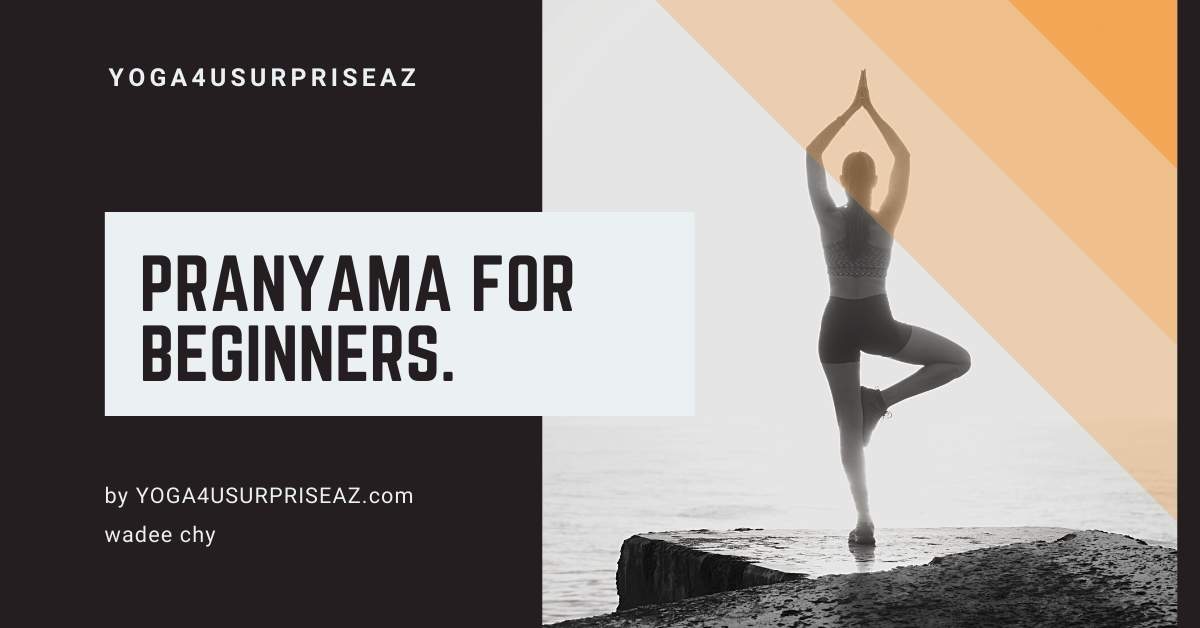Mindfulness meditation in yoga reduces stress by focusing on the present moment and calming the mind. This ancient practice has been proven to be effective in managing stress and promoting overall well-being.
Mindfulness meditation is an integral part of yoga that involves paying attention to the present moment. By cultivating awareness of our thoughts and sensations without judgment, it helps in reducing stress and promoting mental clarity. This practice involves focusing on the breath, body sensations, and emotions, which can lead to a sense of calm and relaxation.
Incorporating mindfulness meditation into yoga not only enhances the physical benefits of the practice but also provides a powerful tool for managing stress in daily life. We will explore how mindfulness meditation in yoga can be an effective strategy for stress reduction and overall well-being.

Credit: www.amazon.com
Benefits Of Mindfulness Meditation
Mindfulness meditation, a powerful tool for stress reduction in yoga, offers numerous benefits. By focusing on the present moment, it promotes relaxation, improved mental clarity, and reduced anxiety. Incorporating mindfulness meditation into your yoga practice can bring about a sense of calm and inner peace.
Benefits of Mindfulness Meditation Mindfulness meditation, a core component of yoga practice, has been widely recognized for its profound impact on overall well-being. The practice of mindfulness meditation encompasses various techniques centered around cultivating a present-moment awareness and non-judgmental acceptance. By integrating mindfulness meditation into yoga, individuals can experience a myriad of benefits, particularly in the realm of stress reduction and promoting inner peace. Below, we explore these benefits in detail.
Reducing Stress
Mindfulness meditation in yoga serves as a powerful tool for effectively reducing stress. The practice encourages individuals to redirect their focus inward, allowing them to acknowledge and release stressful thoughts and emotions. Through mindful breathing and body awareness, the mind becomes calmer, leading to a reduction in stress levels. This enables individuals to navigate daily challenges with a greater sense of calm and clarity.
Promoting Inner Peace And Serenity
The integration of mindfulness meditation in yoga promotes inner peace and serenity. By fostering a deep connection to the present moment, individuals can cultivate a profound sense of tranquility within themselves. The practice encourages a mental and emotional shift towards greater acceptance and equanimity. Over time, this leads to a heightened sense of inner peace and serenity, allowing individuals to navigate life’s ups and downs with grace and resilience.
Understanding Mindfulness Meditation
Understanding Mindfulness Meditation is crucial in the practice of yoga for stress reduction. It involves focusing the mind on the present moment without judgment, which can lead to heightened awareness and a sense of calm. This subliminal art can effectively alleviate stress and promote mental well-being when integrated into yoga sessions. Let’s delve deeper into the Definition and Principles of Mindfulness Meditation, as well as the various Meditation Techniques and Practices.
Definition And Principles Of Mindfulness Meditation
Mindfulness Meditation centers around being fully aware and present in the moment, paying attention to thoughts and sensations without attaching any judgment or reacting to them. The primary principle is to embrace the present moment with an open and non-judgmental mind, cultivating a state of tranquility and awareness.
Meditation Techniques And Practices
Several techniques exist to practice mindfulness meditation, including breath awareness, body scan, and loving-kindness meditation. These techniques emphasize focusing on the breath, scanning the body for tension, and cultivating feelings of compassion and kindness towards oneself and others. Incorporating these practices into yoga can significantly reduce stress levels and enhance overall well-being.
The Role Of Mindfulness Meditation In Yoga
Mindfulness meditation plays a significant role in enhancing the practice of yoga, providing a deeper mind-body connection. By incorporating mindfulness meditation into your yoga routine, you can experience greater stress reduction and a more profound sense of overall well-being.
Enhancing Yoga Practice
Mindfulness meditation enhances the practice of yoga by allowing you to be fully present in the moment. When you cultivate mindfulness during your yoga practice, you develop the ability to observe your thoughts and sensations without judgment or attachment. This heightened awareness enables you to fully experience each yoga pose and movement, promoting improved flexibility, strength, and balance.
Integrating mindfulness meditation into your yoga practice also helps to quiet the mind and create a state of deep relaxation. By focusing on the breath and staying present, you can release tension and stress stored in the body, allowing for a more enjoyable and fulfilling yoga experience.
Deepening Mind-body Connection
Mindfulness meditation deepens the mind-body connection in yoga by fostering a greater awareness of the sensations and emotions present in your body. Through regular meditation practice, you develop the ability to tune in to the subtle signals and messages your body is sending, helping you to respond with kindness and compassion.
This deepening mind-body connection also promotes self-acceptance and self-awareness. When you approach your yoga practice with mindfulness, you become attuned to the sensations, limitations, and strengths of your body. This awareness allows you to adapt your yoga practice and honor your body’s needs, preventing injuries and supporting long-term physical and mental health.
In addition, mindfulness meditation during yoga offers the opportunity to cultivate a sense of gratitude and appreciation for your body. By focusing on the present moment and acknowledging the sensations and movements of each yoga pose, you can develop a deep sense of gratitude for the capabilities and resilience of your body.
Overall, integrating mindfulness meditation into your yoga practice can enhance the physical, mental, and emotional benefits of yoga. By bringing mindfulness to each movement and pose, you can deepen your mind-body connection, reduce stress, and cultivate a sense of overall well-being.
Steps To Practice Mindfulness Meditation
In this section, we’ll explore the steps you can take to practice mindfulness meditation for stress reduction in yoga. Finding a quiet space, focusing on the breath, and observing sensations and thoughts are key components of this practice.
Finding A Quiet Space
When practicing mindfulness meditation, it’s important to find a quiet space where you can fully immerse yourself in the practice. This can be a corner in your home, a serene outdoor setting, or a dedicated meditation room. Ensure that the space is free from distractions and noise.
Focusing On The Breath
Once you have found your quiet space, the next step is to bring your attention to your breath. Sit comfortably with your back straight and close your eyes. Take a moment to settle into this position. Begin by simply focusing on your breath, paying attention to the sensation as you inhale and exhale.
You may find it helpful to count your breaths or silently repeat a word or phrase to enhance your focus. If your mind wanders, gently bring your attention back to your breath without judgment or frustration.
Observing Sensations And Thoughts
As you continue to hold your focus on the breath, gradually expand your awareness to include sensations in your body and thoughts that arise. Notice any physical sensations or tension, such as tightness in the shoulders or warmth in the palms. Observe these sensations without judgment, allowing them to come and go.
Similarly, observe any thoughts or emotions that arise during your meditation. Instead of getting caught up in the content of these thoughts, simply acknowledge their presence and let them pass by, returning your attention to the breath.
Remember, mindfulness meditation is not about trying to achieve a blank mind or suppress thoughts. It’s about cultivating a non-judgmental awareness of the present moment, including the sensations and thoughts that arise.
By practicing these three essential steps—finding a quiet space, focusing on the breath, and observing sensations and thoughts—you can enhance your mindfulness meditation practice and experience the benefits of stress reduction in yoga.
Tips For Cultivating Mindfulness In Daily Life
Explore simple techniques to incorporate mindfulness into your daily routine, such as practicing mindful meditation during yoga sessions to alleviate stress. Stay present in the moment, focus on your breath, and observe your surroundings to promote a sense of calm and mental clarity.
Bringing Awareness To Everyday Activities
In order to cultivate mindfulness in our daily lives, we can start by bringing awareness to the activities we engage in on a regular basis. By consciously acknowledging and fully participating in these activities, we can reduce stress and increase our overall sense of well-being. Here are some tips to help you bring mindfulness to your everyday activities:
- Begin your day with intention: Start your morning by setting an intention for the day. Take a few deep breaths and reflect on what you hope to achieve or experience. This simple act can help you stay focused and present throughout the day.
- Create mindful transitions: Rather than rushing through transitions, such as from home to work or from one task to another, take a moment to pause and breathe. Use this time to bring your attention to the present moment and acknowledge the shift in your surroundings or mindset.
- Engage your senses: Pay attention to your senses as you go about your daily activities. Notice the smells, sounds, tastes, textures, and sights you encounter. This can help you stay grounded in the present moment and deepen your experience.
Dealing With Stressful Situations
1. Pause and breathe:
During stressful situations, it’s important to pause and take a few deep breaths. This can help activate your body’s relaxation response and reduce feelings of stress and anxiety. Close your eyes if possible, and focus on your breath as you inhale deeply and exhale slowly.
2. Practice self-compassion:
Approach yourself with kindness and understanding when facing stress. Acknowledge that stress is a natural part of life and that it’s okay to feel overwhelmed at times. Be gentle with yourself and remind yourself that you’re doing the best you can.
3. Use mindful self-talk:
Instead of engaging in negative or self-critical thinking, cultivate a positive inner dialogue. Use affirmations or statements that promote resilience and self-confidence. For example, “I can handle this” or “I am capable and strong.”
4. Focus on the present moment:
When stress arises, bring your attention to the present moment. Notice any physical sensations you’re experiencing, such as tension or discomfort. Allow yourself to fully feel these sensations without judgment or resistance. By focusing on the present, you can prevent your mind from getting caught up in worries about the future or regrets about the past. Remember, cultivating mindfulness in daily life takes practice and patience. By incorporating these tips into your routine, you can gradually reduce stress and enhance your overall well-being. Take small steps and celebrate each moment of mindfulness you achieve.

Credit: www.goodreads.com
Frequently Asked Questions For Mindfulness Meditation For Stress Reduction In Yoga
Is Yoga A Mindfulness Based Stress Reduction?
Yes, yoga is a mindfulness-based stress reduction practice that incorporates breathing, meditation, and physical poses to promote relaxation and alleviate stress.
How Does Mindful Meditation Reduce Stress?
Mindful meditation reduces stress by promoting relaxation, focus, and self-awareness. It helps calm the mind, releases tension, and cultivates a sense of peace and inner balance. Through regular practice, it enhances the ability to manage stress and respond to challenging situations with mindfulness and clarity.
How To Reduce Stress Through Yoga?
Reduce stress through yoga by practicing deep breathing exercises, gentle stretches, and mindfulness techniques. Regularly attending yoga classes or following online tutorials can help to calm the mind, relax the body, and release tension. Make time for self-care and prioritize your mental well-being.
What Is Mindfulness Based Stress Reduction Technique?
Mindfulness based stress reduction is a technique that helps manage stress by focusing on the present moment. It involves being aware of thoughts, feelings, and sensations without judgment. This technique can improve mental well-being and reduce stress levels.
Conclusion
In essence, mindfulness meditation in yoga serves as an effective technique for reducing stress. The practice enables individuals to cultivate a state of present moment awareness, allowing them to observe their thoughts and emotions without judgment. By incorporating mindfulness meditation into their yoga routine, practitioners can experience improved mental well-being and enhanced stress management skills.
With consistent practice, individuals can harness the power of mindfulness to create a calmer, more balanced life.



